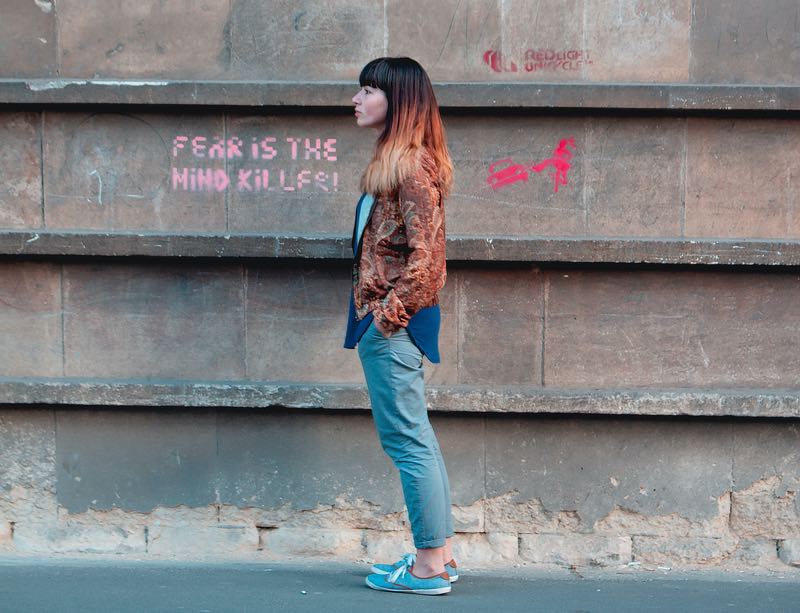Understanding oneself as an empath is often a long journey. This heightened sensitivity, while empowering, can draw the complete antithesis: the narcissist.

Narcissistic relationships, common yet complex, exist even in parent-child dynamics. These relationships impact self-esteem and the processing of our own emotions.
This article will demystify the puzzle of the empath-narcissist attraction. You’ll gain a clearer perspective of narcissistic relationships and find guidance to liberate yourself from such destructive connections.
UNDERSTANDING NARCISSISM: THE OPPOSITE OF EMPATH
A narcissist AKA ‘narc’ is a person who has been (or should be) diagnosed with Narcissistic Personality Disorder (NPD.)
Because it is very rare for a narcissist to seek help, a vast majority of those who have narcissistic traits are and will remain undiagnosed. However, that doesn’t mean they aren’t wreaking havoc on the lives of others.

It also doesn’t mean you can’t pinpoint a narcissist by their personality traits/behavior. Just like tigers have stripes, narcissists share similar markers that can help you identify them and their toxic behavior.
A PATTERN OF GRANDIOSITY
According to the book professionals use to diagnose NPD, this disorder is marked by a pattern of grandiosity that is present by early adulthood. This is a larger-than-life sense of superiority and invulnerability. This usually presents in nine specific ways:
- The opposite of an Empath has an exaggerated sense of self-importance and expects to be recognized as superior. Narcissists often lie about achievements and expect others to see them as exceptional and without flaw or fault.
- Has fantasies about and is often obsessed with the idea of being “the best.” I.e., all-powerful, super successful, the most brilliant, most beautiful, etc. And often, they succeed. Unfortunately, their route includes bulldozing others.
- Believes that he/she is unique and special in such a way that only others of a similar status could understand them. This makes it difficult for them to create and maintain solid friendships and relationships. After all, they feel they are better than everyone else.
- Has an arrogant attitude. Because of the traits listed above, narcissists often come across as very self-assured at the first meeting. Most of the time, this morphs into arrogance as you get to know them better.
This shouldn’t be confused with confidence which is a positive trait that is built off being aware of strengths and weaknesses. Narcissists feel that they have no faults and have to brag and belittle to show how worthy they are. - Requires excessive amounts of admiration from others. This is what is known as “narcissistic supply.” If their partner, friend, child, etc. is no longer providing never-ending amounts of praise, they often get bored and move to the next.
- Possesses a sense of entitlement and expectation of others that is totally unrealistic. For example, the narcissist in an empath narcissistic relationship will often expect total perfection and automatic compliance from his or her partner. “Why?” you might ask. Well because the narcissist feels he is all-deserving, of course.
- A tendency to exploit and take advantage of others. Narcissists tend to see people not as equals, but as things to use to their advantage. After all, they feel they are superior and therefore, everyone else, even their own children, is expendable.
This is why narcissists are famous for ‘discarding’ those that love them in a way that is similar to tossing out the trash. Once they have no use for you, you are forgotten. - Lack of empathy. This is the one that makes the narcissist the opposite of an empath. Whereas empaths are able to understand the feelings of others on a deep and profound level, narcissists are unable to do so. In fact, even relating to another person’s emotions at all is foreign.
Don’t get me wrong, opposites of empaths/narcissists are good at ‘faking it’ in the beginning. But this is just an act and is similar to the way an actor can feign a foreign accent while in character.
Deep down, a narcissist can’t and doesn’t want toconsider how you feel or what you need. They will always revert back to their true nature. - Envy is a common emotion. This happens in two different ways. For one, deep down, narcissists are really insecure and envious of everyone. They know something is ‘off’ and loathe themselves. Of course, this is something that they would never admit. They are also very paranoid and believe that others are out to get them or envious of them.
It is important to remember that a person suffering from NPD can have some or all of the following characteristics. You might even see some in your own behavior. We all have flaws. But the true opposite of empath narcissist will show at least five.
THE EMPATH NARCISSIST RELATIONSHIP
Narcissists aren’t born, they are made. The same is true for most empaths. A great percentage of empaths experience trauma in their childhood.

This often happens in the form of physical or emotional abuse at the hands of a parent with problems. This parent might have been depressed/mentally ill, an alcoholic/addict, or a narcissist.
WHY EMPATHS ARE A PERFECT MATCH FOR NARCISSISTS
Some children rise out of the ashes of trauma as a sensitive, empathetic person who wants to bring good to the world and help others. This is a good thing, but it comes with difficulties.

Empaths tend to be extremely sensitive and are often overwhelmed, have a hard time letting go, and struggle with boundaries. We can also be naive (think little red riding hood in the woods.) This makes us a perfect match for the opposite of an empath: a narcissist.
WHY NARCISSISTS TARGET EMPATHS
You see, narcissists were also impacted by childhood trauma. However, they used different coping mechanisms to deal with their abuse than the empath.
The unfortunate result is a pathologic self-centeredness that never naturally declined over time like what happens with most children.

Instead, they used these patterns as a way to protect and care for themselves. This leads to a personality that is described by Psychology Today like this:
Narcissists make others miserable and get aggressive with people who won’t give them the agreement, admiration, and respect they feel entitled to, expecting automatic compliance…
A narcissist is toxic to situations and people, except perhaps to an inner circle of supporters—at least for as long as they continue to support the narcissist’s agenda.
Who better than to support and admire such a person than an empath who is loving, caring, and sees the good in everyone? This is especially true of empaths with co-dependent tendencies.
WHY AN EMPATH NARCISSIST RELATIONSHIP CAN BE TOXIC
Empaths, in their caring nature, tend to provide exactly what a narcissist craves: abundant love, attention, and effort. Like a vampire extracting energy from its prey, narcissists thrive on this.
The exchange isn’t one-sided, though. Empaths feel valued and get to express their innate giving nature. However, a pivotal realization often comes when the cost becomes too steep.

We cannot conjure love in another or resolve their internal struggles. It’s a hard truth that echoes the sentiments of many mental health professionals.
Many psychologists, in fact, argue that a narcissist’s transformation is nearly impossible, given the dishearteningly low recovery rates for Narcissistic Personality Disorder (NPD).
Yet, I refuse to accept absolutes.
Overcoming negative programming is a possibility for anyone. However, such change can only be initiated and achieved by the individual themselves. In this process, it’s crucial that others, particularly empaths, don’t linger, attempting to “help,” but rather prioritize their own feelings and well-being.
HOW TO BREAK AND AVOID EMPATH NARCISSIST PATTERNS?
Not every empath will fall victim to the empath narcissist dance, but many, many will. And if it happens once, you can almost guarantee it will happen again.
This is because a person who is attracted to a person with a serious personality disorder like NPD usually has some healing to do.
In fact, I’ll let you in on a secret. As much as we would like to think of a narcissist as the opposite of an empath, they are usually our perfect match.

When I say this to people, I often get a puzzled or disgusted look. But we have to remember that the people that come into our lives don’t do so by chance.
If you have been impacted by narcissistic abuse it can serve as a warning sign that something deeper may be hiding just under the surface, something that needs to be healed. This is especially true if you struggle to let go of the connection even though it is clearly harming you.
Here are a few suggestions on ways to break/heal from such a traumatic bond:
1. LEARN AS MUCH AS YOU CAN ABOUT THE OPPOSITE OF AN EMPATH
There is so much information out there about the empath narcissist connection. By learning all you can about these personalities, you empower yourself to make a sincere change. Read articles, read books, andwatch Youtube videos. Knowledge is power.
But remember, for every 1 thing you read about narcissistic traits and abuse, you should read 5 more on healing. You must focus on you above all else.
2. RECOGNIZE AND ACCEPT YOUR ROLE
Narcissistic abuse is categorically unacceptable, and the victim is never to blame.
However, elements of a victim’s personality or past can make them more susceptible to such connections. Reflecting on these questions may provide some insight:
- Did I have a narcissistic parent, an alcoholic, or an emotionally absent caregiver during my formative years?
- Does the narcissist in my life bear a resemblance to this caregiver?
- Am I replicating a pattern from my childhood?
- As a dependable individual, do I habitually extend help to others even to my own detriment?
- Do I find it challenging to establish or maintain boundaries?
- Do I grapple with issues of self-confidence or self-esteem?
- Am I an empath or a highly sensitive person?
- Do I often feel an urge to rescue or support individuals who are in distress?
Examining these traits and past experiences can help you assume greater accountability for your life and future decisions. By understanding your susceptibility, you can empower yourself to break free from the cycle of narcissistic abuse.
3. FOCUS ON HEALING
If you answered yes to any of the questions above, you may need to work on healing inner issues. You can do this work alone, but usually, the help of a qualified counselor/therapist can make the process a lot smoother.

Meditation and healing your chakras are also good starting places as they put you in touch with your higher self. Your higher self will always have your best interest at heart and can guide you toward the right decisions and healthy relationships (you might even find your twin flame).
4. CHOOSE NO CONTACT WITH THE OPPOSITE OF EMPATHS
Hippocrates, a Greek physician born 400 years before Christ, is a timeless figure of medicine.
His name is the root of the “Hippocratic Oath” taken by doctors and he was both wise and brilliant.
I’m not sure if Hippocrates knew any narcissists or empaths, but I know he was quoted as saying:
“Before you heal someone, ask him if he’s willing to give up the things that make him sick.” ― Hippocrates
The only way to heal from toxic relationships is to give them up completely. As hard as it might be to walk away, we must do so if we are to ever be whole and at peace.

This comes in the form of no contact. And when I say none, I mean zero, zilch. If you have children, you can go the “grey rock” method instead, which is built on limited contact.
For me, this has been, the most difficult struggle of my life. It’s one that I face over and over again, sometimes daily. Yet, I choose no contact because I know it’s the loving one for me. And all healing falls back to self-love.
FAQS ABOUT EMPATH AND NARCISSISTS
WHAT IS A DARK EMPATH?
Unlike the conventional empath, known for their compassionate and understanding nature, a dark empath can navigate the emotional world with a somewhat twisted map. They still possess that empathic knack for understanding the emotions of others, but here’s the twist: they might use this insight for their own interests, much like a narcissist would.
ARE EMPATHS AND NARCISSISTS OPPOSITE?
Yes, empaths and narcissists are often considered opposites due to their starkly contrasting behaviors and traits. Empaths are known for their deep sensitivity and understanding of others’ feelings, whereas narcissists typically lack empathy and are self-focused, often manipulating others for their own gain.
CAN EMPATHS AND NARCISSISTS BE HEALTHY FOR EACH OTHER?
Typically, relationships between empaths and narcissists are challenging and can be unhealthy due to their contrasting natures. The empath’s tendency to give and understand can be exploited by the narcissist’s self-centeredness and need for admiration. While there might be exceptions, it generally requires significant self-awareness, clear boundaries, and substantial effort from both sides to maintain a healthy relationship in such cases.
WRAPPING UP
Understanding the intricate dance between empaths and narcissists can be quite challenging. It’s a journey that asks for a deep dive into self-awareness, your own reflection, and sometimes, the supportive guidance of a mental health professional.
Empaths, with their naturally generous hearts, may often find themselves in tricky spots with narcissists. But don’t worry, through nurturing our self-awareness and spending quality time in self-reflection, we can decode our tendencies and free ourselves from unhealthy cycles.
Knowledge of how empaths and narcissists interact can be a powerful asset, helping guide us towards healthier emotional landscapes.
Remember, the power to change your story lies in your hands and is sparked by your heart.
You’ve got this!
Gazelle Stasney says
I just read your other blog on clairsentience, and then found this one; and will read more! I am definitely an empath, and now I realize, Clairsentient, all over–but I came to this by almost being destroyed by narcissistic relationships. I did what you advised, I listened, read, and LEARNED. knowledge is power! In my case, it’s narcissistic siblings. I’m the oldest of ten full siblings, all very close together–and I realize now that I lost myself in those relationships from a very early age, and decades later, when my own kids and grandkids came into the picture–it got very very very ugly. I have had to go no contact with sisters. You bet it’s hard. But it’s the only way to peace, an actual life! self-healing, disentanglement. etc. The empath in me doesn’t want others to hurt; of course. In the last few months, I have spent 3000 dollars helping a youngest sister, who then turned around and was very abusive; and that is only one of my relationships. It is true, they love all the love, and genuine support you can give them, they want you in the relationship, not for you, but for what you give them. They can shockingly cut off relationships, without any apparent heartbreak, just like that! It’s happened with two sisters. Narcissism/empathy relationships are very very real. They can totally fuck up your life, your health, your other relationships, your own ability to pursue your own dreams. It can be very subtle, but it doesn’t make it any less real. Listen to your feelings; what is happening inside of you when you’re in relationship with these people? Thanks so much for your wonderful site!
Wille says
I am glad my articles are helpful for you! It sounds like you have been suffering a lot recently, but you are beginning to discover what you need to do in order to be happy and healthy. I hope you carry on forward!
Wille xxxxx
Wille says
Hi, thank you for your feedback! I am happy to hear my empath article was useful to you ????
Lou says
Hey, I am Lou, Wille’s VA. Thank you so much for your comment, it really makes us feel good when the website is helping others!
Lou xxxx